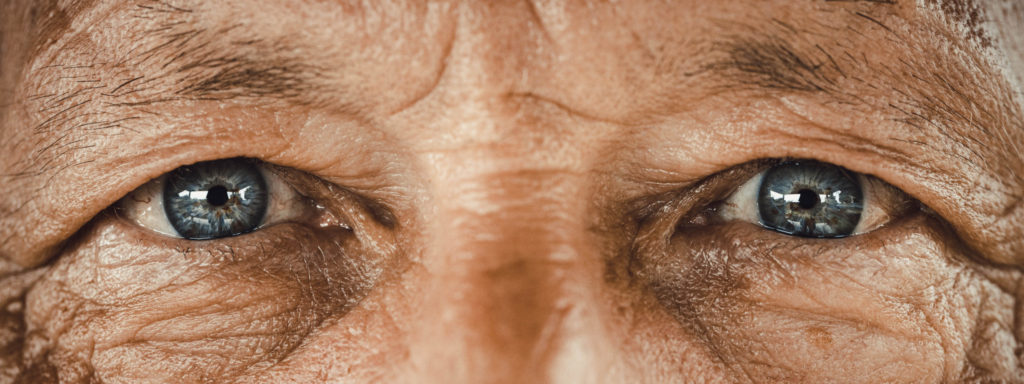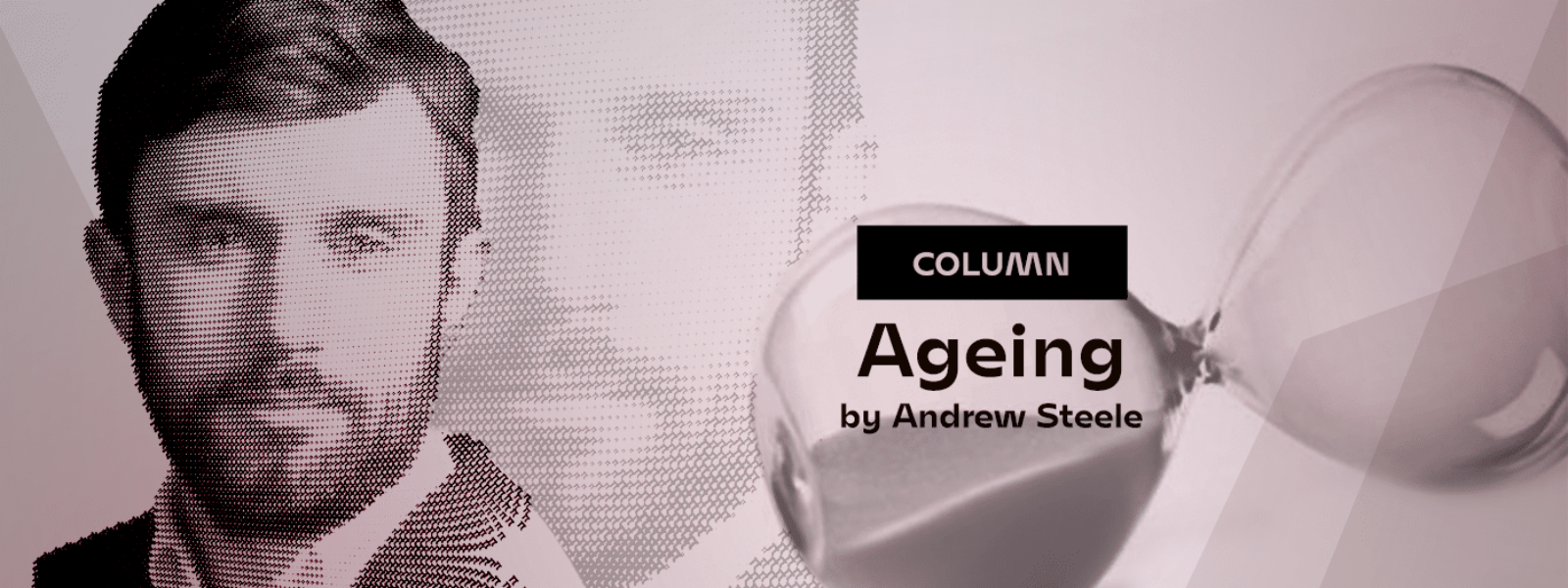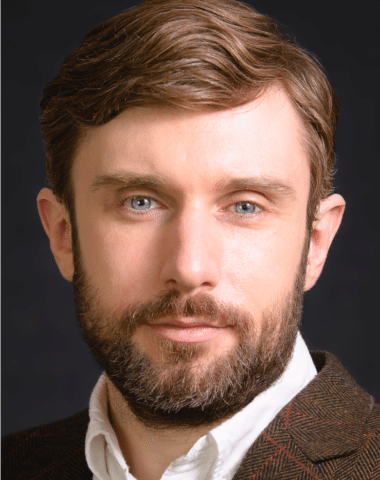Are we really doomed to grow old and die?
#1 DO WE HAVE TO GROW OLD?
True: Ageing is responsible for more than 100,000 deaths every day
Of the 150,000 deaths that occur on Earth every day, over two thirds of them are due to ageing1. This is because, biologically, the ageing process is the cause of our biggest killers, like cancer, heart disease and dementia2. Though diet, lifestyle and other factors can make these more or less likely, their effect is dwarfed by the biological consequences of getting older: having high blood pressure can double your risk of a heart attack, but being 80 rather than 40 multiplies it by ten 3. As a result, ageing is the single largest cause of death and suffering, globally.
False: The ageing process is inevitable
Though we think of getting older as a natural fact of life, this isn’t the case for all species. Biologists have a simple definition of ageing: an increase in risk of death with time. Humans have a risk of death that doubles every eight years4. However, some species, including some tortoises, fish and salamanders, are ‘negligibly senescent’—more plainly, they don’t age5. Along with their unchanging risk of death, these animals don’t become frail or less fertile with time. This means that their ‘healthspan’ is increased, along with their lifespan.
Uncertain: How long we can hope to live
Every so often, a study proposes a ‘limit’ on human lifespan, either by looking at demographic trends, or analysing aspects of human biology. However, these ‘limits’ have repeatedly been smashed historically, as life expectancy in the leading country has increased by three months per year, every year for almost two centuries6. Are we approaching a real biological limit now? Or can medicines that target the ageing process help us sidestep the constraints that evolution has placed on us, and help humans become more like negligibly senescent tortoises?

*****
#2 CAN SCIENCE EXPAND LIFESPAN?
True: We can slow down and even reverse the ageing process in the lab
Scientists have found dozens of ways to intervene in the ageing process in the lab. The first indication came in the 1930s, when scientists studying diet in rats noticed that those eating less lived substantially longer than their peers allowed to eat what they liked—and they did so in good health, staying fit and with less disease7. We’ve since replicated this feat by finding genes that can slow ageing, and using drugs and other treatments that alter aspects of the ageing process, slowing the decline in lab animals. The first of these are already being trialled in humans.
False: Living longer would mean extra years in a nursing home
A lot of people imagine that living longer would mean extending the frail years at the end of life, dragging out our decrepitude. But this understandable worry gets things backwards from a biological perspective: as we treat ageing, we’d increase healthspan by deferring the age-related changes that cause disease, and this would cause people would live longer, rather than the other way around. This makes sense in theory—because you have to die of something, so not being ill means you’re much less likely to die—and also in practice, where both slow-ageing lab animals and exceptionally long-lived humans don’t just live longer, but spend a greater fraction of their lives in good health.
Uncertain: How medical practice and regulation will adapt to these new, preventative treatments
The dream of real anti-ageing medicine is preventative treatments that would slow down our decline as we age, and prevent many or even all of the age-related killers. However, this approach is very different to current medicine, which usually waits for diseases to arise before intervening, and then treats them individually. This means that regulators, like the FDA in the US or EMA in Europe won’t approve a drug unless it’s effective against a specific disease. We need a societal debate about how we should go about approving preventative treatments for ageing—and the potential benefits are so large it’s critically important that we get this right.
*****
#3 WILL WE BE ABLE TO BUY IMMORTAILITY?
True: Billionaires and private companies are trying to slow the ageing process
In 2013, Google launched a spin-out called Calico aiming to understand and intervene in the ageing process. This year, Amazon founder Jeff Bezos sunk some of his billions into a company called Altos Labs, working on an age-reversing technology called ‘cellular reprogramming’. After decades as a niche scientific pursuit, ageing biology finally has enough concrete results that big investors are getting interested. However, there’s still lots of work to do, including fundamental biology typically studied in universities and research institutes, and more funding is desperately needed: in the US, only about a dollar of government funding per American is specifically earmarked for research to understand the ageing process—compared to more than $10,000 per person spent on healthcare, a number which ageing research could substantially reduce8.
False: We’re on the brink of immortality!
The press loves to run with headlines about living forever, particularly in the context of billionaires investing in ageing research to give them a bit longer to spend their unimaginable wealth. However, immortality isn’t on the cards even in the best-case scenario: even negligibly senescent animals still die (the oldest recorded Galápagos tortoise, Harriet, died of a heart attack—the difference between her and a human was that she lived 175 healthy years first!)9. Even if the outcome isn’t immortality, it could still be hugely significant: a recent paper estimated that delaying ageing by just one year would be worth $37 trillion to the US economy alone, and larger gains would be worth proportionately more10.
Uncertain: When these medicines might arrive
In spite of big-money bets from billionaires, it’s not clear how long it will be before we can expect to see the first anti-ageing medicines in hospitals, or the local pharmacy. Moving from an idea that works in mice in the lab to human treatments is a notoriously difficult process. However, it seems likely that they will arrive in time for most people alive today. Some proposed treatments are drugs that we already use for specific conditions, such as diabetes drug metformin and, if that works against ageing, there’s no reason we couldn’t roll it out globally with immediate effect (it helps that it’s a well-understood medicine that costs cents per pill). Other front-runners, like ‘senolytic’ drugs that remove aged, senescent cells from the body have proved their mettle in mice and are already undergoing human trials, so it’s quite possible they could be in use before the decade is out. More speculative ideas, like the cellular reprogramming being explored by Altos Labs, might be decades away—but, if you’re middle-aged or younger today, or a little older but live longer thanks to the first generation of anti-ageing drugs, a few decades is still soon enough to matter. This means, while we can’t be sure, I think it’s well worth getting excited about ageing biology—and doing more research to make unlocking the enormous potential economic, social and health gains more likely.














